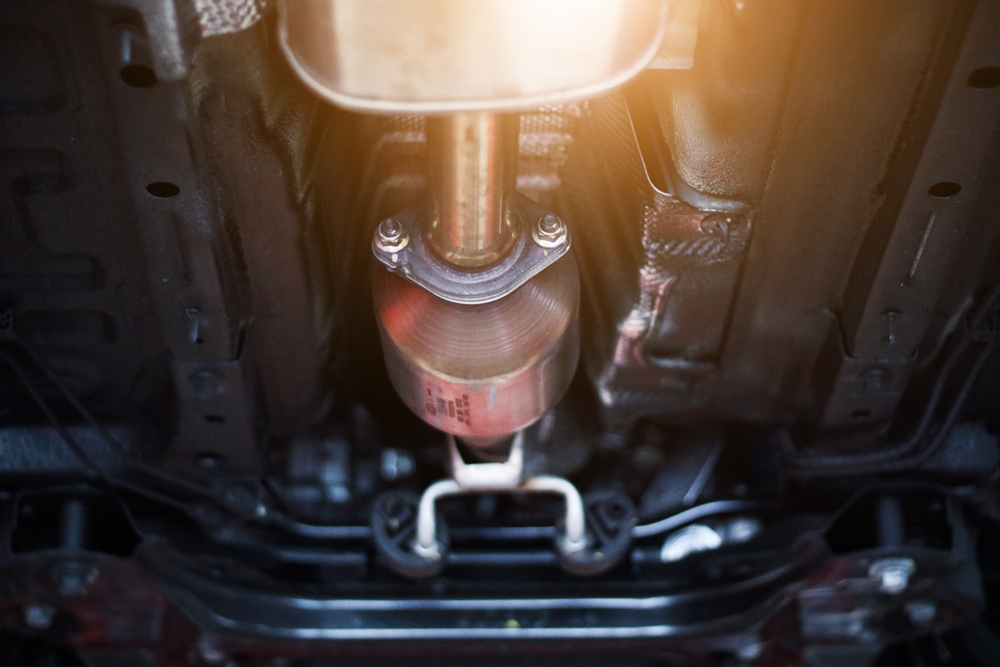What To Know For Safety and Emissions Checks

Emissions checks play a crucial role in maintaining not only the safety of your vehicle but also the air quality in your community. Staying informed about what these checks involve and understanding how they impact your vehicle’s performance can help you avoid costly repairs and ensure compliance with regulations. Below, we explore the essentials of safety and emissions checks, their purpose, and how to prepare for them.
The Purpose of Safety and Emissions Checks
Safety and emissions checks are designed to ensure that vehicles operate within legal and environmental standards. These inspections are often mandated by state governments to keep roads safe and reduce harmful pollutants emitted into the atmosphere.
Why Emissions Checks Matter
Vehicle emissions contribute to smog, respiratory issues, and environmental degradation. By performing regular emissions checks, authorities can monitor harmful emissions such as carbon monoxide, nitrogen oxides, and hydrocarbons.
Key Benefits:
- Improved air quality
- Detection of malfunctioning systems
- Identification of vehicles in need of vehicle repair
Many states enforce state required emissions checks to ensure that vehicles comply with the Environmental Protection Agency (EPA) guidelines.
Ensuring Vehicle Safety
Safety checks focus on evaluating critical vehicle components such as brakes, tires, lights, and steering. Faulty systems can lead to dangerous situations on the road, making safety inspections essential for protecting drivers and passengers.
State Regulations for Emissions Checks
The rules for emissions checks vary by state. Some states require annual inspections, while others may only require them biennially or for specific vehicle categories.
Emissions Checks Frequency by State
- Annual inspections: States such as New York and Virginia require yearly emissions and safety checks.
- Biennial inspections: States like California and Washington require emissions checks every two years.
- Exemptions: Some states offer exemptions for electric vehicles, hybrids, or newer model vehicles that meet stricter emissions standards.
Checking your local DMV’s website can provide clarity on the emissions checks frequency for your state and inform you of any changes in legislation.
Penalties for Non-Compliance
Failing to comply with state required emissions checks can lead to fines, suspension of vehicle registration, and in some cases, an inability to renew your license plate. Staying ahead of inspection deadlines helps you avoid these penalties.
Common Vehicle Issues Detected in Emissions Checks
Knowing what issues can arise during an inspection can prepare you for potential repairs and reduce the risk of failing.
Exhaust System Problems
A malfunctioning exhaust system can lead to excessive pollution and noise. Signs of exhaust issues include:
- Strange noises from under the vehicle
- Decreased fuel efficiency
- The smell of fumes inside the vehicle
A vehicle repair involving the catalytic converter or oxygen sensor may be necessary if the exhaust system fails.
Faulty Engine Components
The engine plays a crucial role in vehicle emissions. Faulty spark plugs, ignition coils, or fuel injectors can cause incomplete combustion, increasing pollutant output.
Regular maintenance can help catch these issues early and prevent more extensive repairs.
Check Engine Light
A lit check engine light is a common reason for failing an emissions check. This indicator can signal various issues, such as:
- A malfunctioning mass airflow sensor
- Problems with the exhaust gas recirculation (EGR) system
- Faulty fuel cap
If your check engine light is on, it’s essential to address it before your inspection.
Preparing for Your Emissions and Safety Inspection
Proper preparation can save time and reduce the likelihood of failing an inspection.
Perform a Pre-Inspection Check
Conducting your own pre-inspection can identify potential issues before your scheduled emissions checks.
Steps to Take:
- Inspect your tires: Check for adequate tread depth and proper inflation.
- Test your lights: Ensure that headlights, brake lights, and turn signals are functioning.
- Check fluids: Ensure that engine oil, brake fluid, and coolant levels are appropriate.
- Review emissions components: Check for visible leaks or damage to the exhaust system.
Address Check Engine Light Issues
Never ignore the check engine light. A diagnostic test can pinpoint the exact issue, and many auto parts stores offer free diagnostics to help you understand what repairs might be needed.
Warm Up Your Engine
Warming up your engine before an emissions test can improve your chances of passing. When the engine reaches its optimal temperature, the catalytic converter operates more efficiently, reducing harmful emissions.
Emissions Safety Tips for Long-Term Compliance
In addition to passing inspections, adopting good habits can ensure that your vehicle remains compliant and performs efficiently.
Keep Up with Routine Maintenance
Routine maintenance prevents minor issues from becoming major problems. Key maintenance tasks include:
- Changing the oil regularly
- Replacing the air filter as recommended
- Checking the fuel cap for cracks or looseness
Regular maintenance reduces wear and tear and supports lower emissions.
Drive Smart
Driving habits can impact your vehicle emissions. Rapid acceleration, harsh braking, and excessive idling increase fuel consumption and pollutant output.
Tips for smarter driving:
- Maintain a consistent speed
- Use cruise control on highways
- Avoid unnecessary idling
Upgrade Emission Control Systems
Older vehicles may benefit from upgrading emissions control systems. Modern components, such as advanced catalytic converters and oxygen sensors, can improve your vehicle’s performance and reduce harmful emissions.
What Happens If You Fail an Emissions Check?
Failing an emissions check can be stressful, but understanding your options can help you address the issue effectively.
Common Reasons for Failing
- Faulty catalytic converter
- Leaks in the exhaust system
- Malfunctioning oxygen sensor
If you fail the inspection, you’ll typically be given a grace period to address the issue and have your vehicle retested.
Vehicle Repair Solutions
After a failed emissions check, a vehicle repair shop can diagnose the problem and recommend solutions. Common fixes include:
- Replacing the catalytic converter
- Repairing leaks in the exhaust system
- Updating sensors and ignition components
Retesting Requirements
Many states offer a free or reduced-cost retest within a certain timeframe after the initial failure. Check your state’s policy to ensure you schedule your retest promptly.
Exemptions and Waivers
Some states offer exemptions or waivers for emissions tests under specific circumstances.
Common Exemptions
- Newer vehicles: Vehicles under a certain age may be exempt from emissions checks.
- Electric vehicles: Fully electric vehicles typically do not require emissions checks.
- Classic cars: Older vehicles registered as classics or antiques may also be exempt.
Financial Hardship Waivers
In some cases, states may provide a waiver for individuals who cannot afford extensive repairs. Proof of financial hardship and a good-faith effort to repair the vehicle may be required.
Final Thoughts on Safety and Emissions Checks
Staying informed about emissions checks and safety inspections helps you maintain your vehicle’s performance, avoid fines, and contribute to a cleaner environment. By adhering to state regulations and practicing preventative maintenance, you can ensure that your vehicle remains roadworthy and compliant. Regular attention to your vehicle’s components, such as the exhaust system and engine, minimizes the chances of costly repairs and reduces pollutant output.
Whether your state mandates annual or biennial emissions checks, preparing in advance and understanding the requirements can make the process seamless. If repairs are necessary, addressing them promptly will keep your vehicle in top condition and help you pass future inspections with ease.
Need a Towing & Auto Repair Shop in Worcester, MA?
Here at Early’s on Park Avenue Inc., we’re dedicated to getting you back on the road with reliable, fast, and friendly service. Whether you need 24-hour towing, expert auto repair, or are looking for quality vehicles for sale, we’re here to help! As a family-owned business, we take pride in treating our customers like family and delivering top-notch service every time. Don’t wait—give us a call today and let us handle all your automotive needs!
